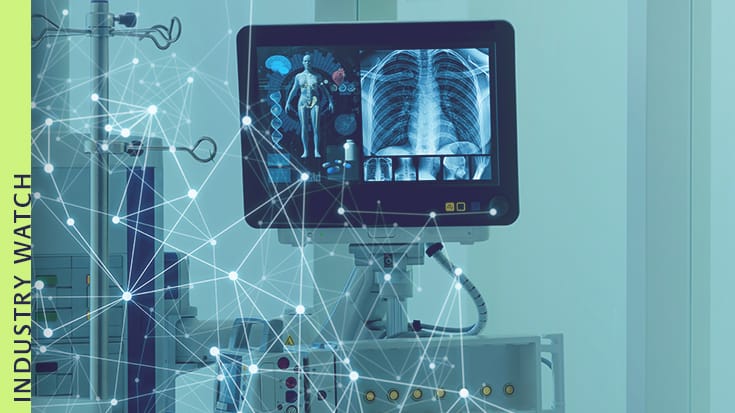
Inhaled COVID-19 Drug Found Effective in Phase 2 Trial
A second randomized, placebo-controlled Phase 2 trial has found that Pulmotect’s PUL-042 works against COVID-19. The inhaled medication was associated with improved respiratory symptoms and fewer ICU admissions. It also appeared to be effective against all SARS-CoV-2 variants tested at the time. PARI’s LC Spring Reusable Nebulizer delivered the medication. “PUL-042 was administered by nebulization on Day 1, Day 3, Day 6, and Day 10 following enrollment into this trial with follow up to Day 29,” said Pulmotect CEO Colin Broom, MD. “These data in conjunction with the previously reported trial in patients with early COVID-19 are consistent with the demonstration in multiple animal models of the ability of PUL-042 to stimulate the immune system in the lungs to protect against a wide range of pathogens.” Read More
LungPacer Medical Wins 2021 Shark Tank Innovation Competition
LungPacer Medical took top honors in the 2021 Shark Tank Innovation Competition held during the recent Transcatheter Cardiovascular Therapeutics meeting. The Jon DeHaan Foundation Award for Interventional Innovation also went to Lungpacer. The company makes a diaphragm pacing therapy system called AeroPace, specially designed for critically ill patients on mechanical ventilation. The FDA has recognized the device as a Breakthrough Technology and approved it for use under Emergency Use Authorization for patients with COVID-19. Thanks to recent successful financing, Lungpacer generously passed on the $200,000 award in the competition to the second-place winner, Aquapass, the world’s first noninvasive, drug-free, fluid overload treatment system and a potential treatment option for patients with heart failure, lymphedema, and chronic kidney disease. Read More
NIAID Grant to Fund Research Into Anti-Rejection Drug for Lung Transplant Patients
Physicians from both the Washington University School of Medicine in St. Louis and Massachusetts General Hospital/Harvard Medical School in Boston received a seven-year, $22 million grant from the National Institute of Allergy and Infectious Diseases (NIAID). The grant aims to evaluate whether a novel immunosuppressant can reduce the risk of organ rejection after a lung transplant. The multicenter study will test the drug clazakizumab, a monoclonal antibody against interleukin-6 (IL-6), in 330 patients. The research will build on previous studies conducted in animals that have shown that blocking IL-6 can assist the body in tolerating transplanted lungs. “Of all the organs that we transplant, the outcomes generally are worse with a lung for a variety of immunological and biological reasons,” said study investigator Daniel Kreisel, MD, PhD, from Washington University School of Medicine. “This clinical trial is an attempt to address the problem using a different strategy that broadens our immunosuppressive capabilities across different parts of the immune system.” Read More
NIH Grant to Support IPF Research
Researchers from Northern Arizona University have received a $469,034 grant from the NIH to investigate a possible new treatment for idiopathic pulmonary fibrosis (IPF). The team will target the matrix of proteins that makes lung tissue more rigid in IPF, with a protein domain conserved among a family of immune-suppressive proteins. The goal is to reverse the matrix formation and resulting fibrosis. “Like numerous disease states, IPF develops from the contribution of the microenvironment such as the extracellular matrix and immune milieu and defects within the cells that are intrinsic,” said Assistant Professor Archana Varadaraj. “Hopefully, the NIH funding will allow us to identify the contribution of each of these factors with a goal of targeting it. Ultimately, we hope to provide therapeutic agents that can be used either on their own or in combination with existing therapies to reverse fibrosis and restore lung function.” Read More
Email newsroom@aarc.org with questions or comments, we’d love to hear from you.











